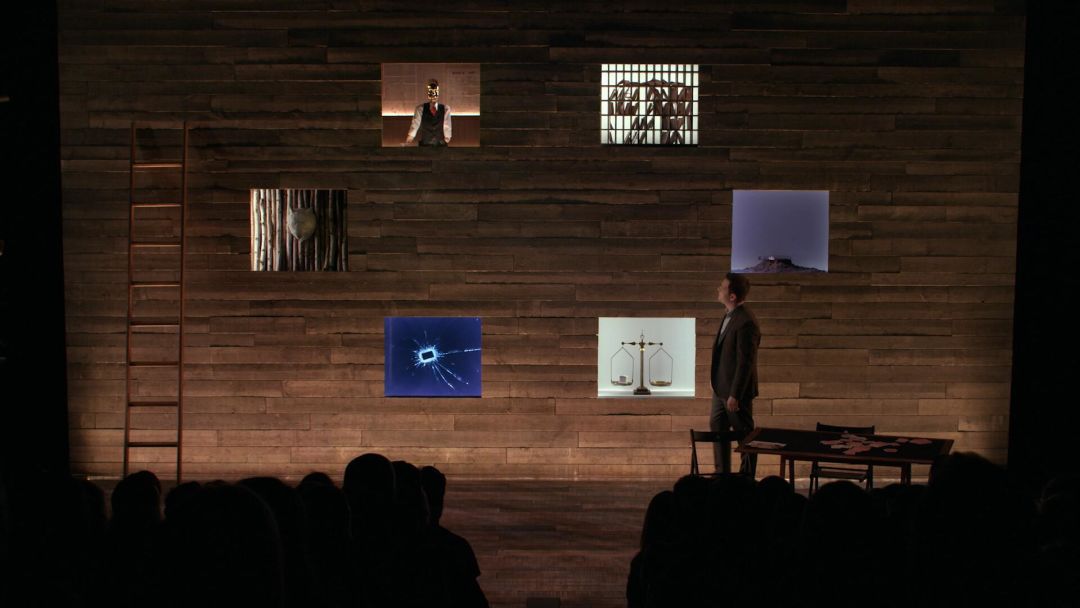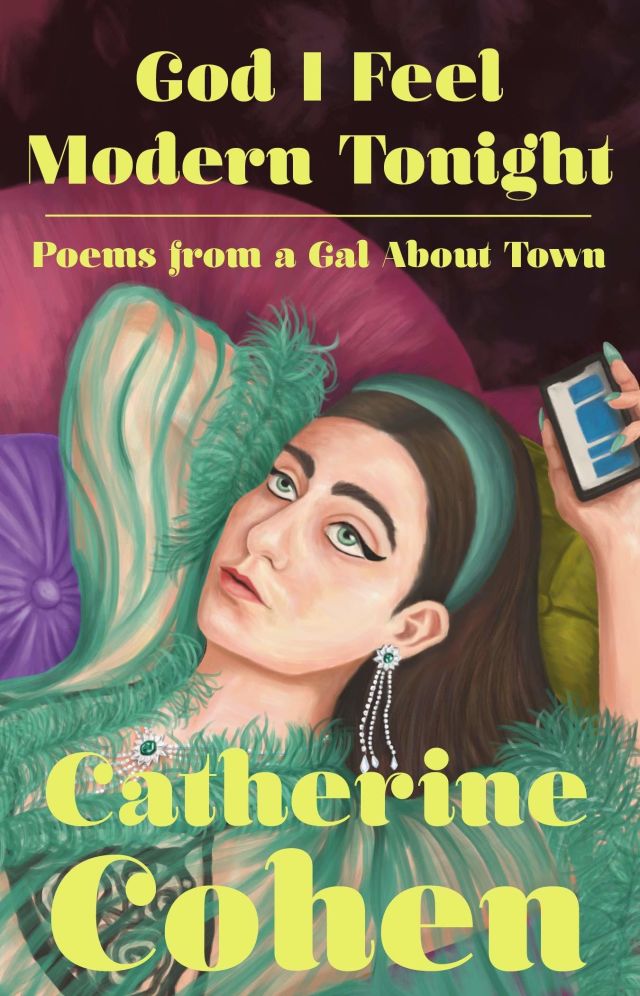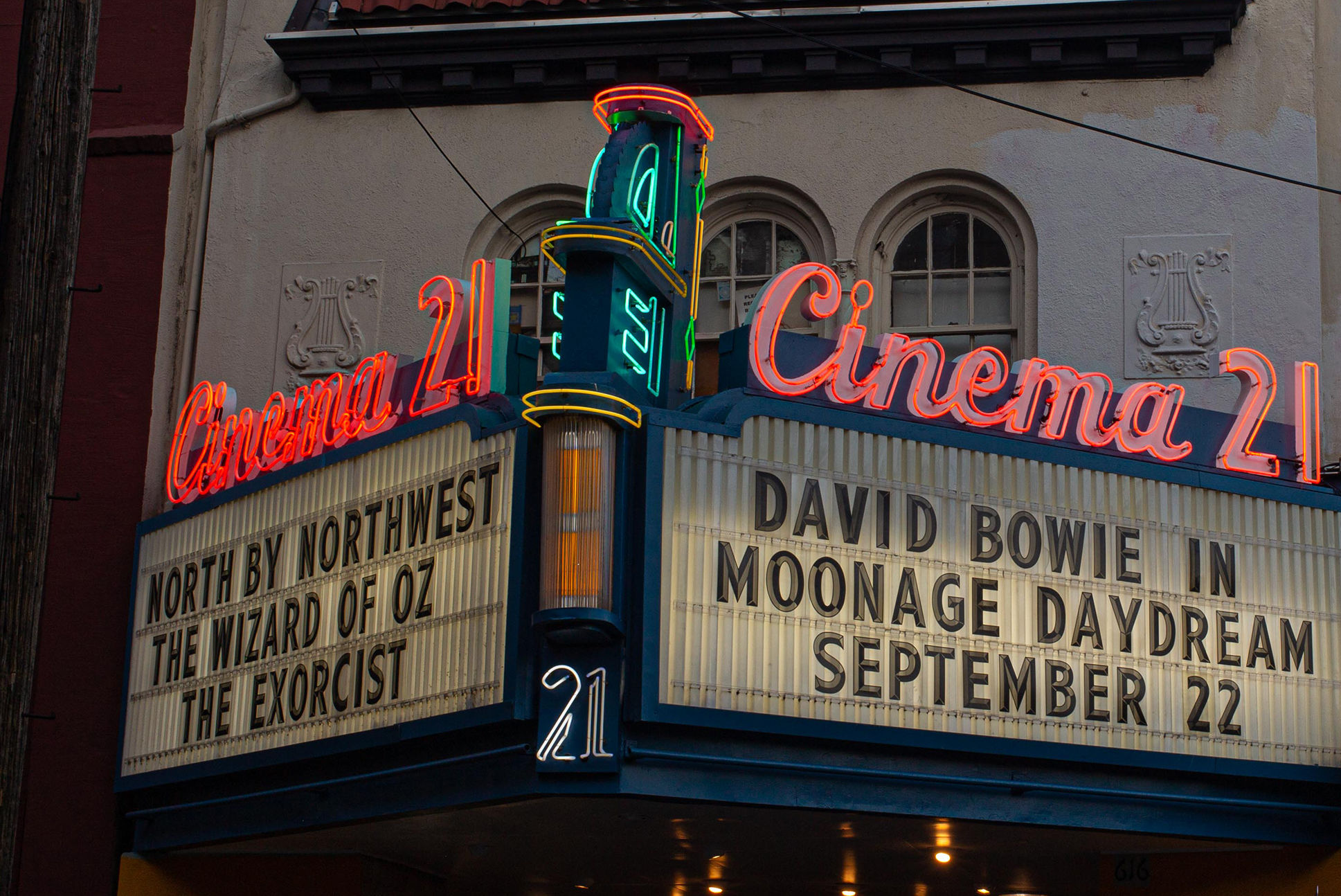Pop Culture Worth Your Time: In & Of Itself, Tove Lo, and More

Derek DelGaudio in In & Of Itself
Image: Courtesy Hulu
With the snowpocalypse (hopefully) behind us, we're in for the Portland spring special: rain. To help you figure out what to snuggle up to during the wet weekend ahead, here's a look at what we’ve loved at Portland Monthly this week, from a classic teen sitcom to a brash poetry collection and beyond.
Derek DelGaudio’s In & Of Itself
How to describe Derek DelGaudio’s In & Of Itself, now streaming on Hulu? The New York Times says, “In & of Itself reframes familiar tropes like card tricks, vanishing objects and stupendous feats of mentalism to new ends. It is not often that a magic show makes you ponder not just the how, but the why.” NPR does it with, “You'll hear In & of Itself referred to as conceptual magic or interactive theater or a one-man show. Those things are all technically true, but they're desperately incomplete. I might describe it as a series of vignettes, punctuated by some basic sleight-of-hand, some card tricks, and two of the most extraordinary audience-involved sequences I ever expect to see. I don't understand—at all—how either was done.”
Freaks and Geeks
God I Feel Modern Tonight

Image: Penguin Random House
It is written on a stone tablet somewhere near the site of the meteor that killed the dinosaurs that just because somebody has a podcast doesn't mean they should have a book. I have lived/laughed/loved Catherine Cohen’s podcast Seek Treatment since it first began—it got me through long weeks as an aimless postgrad lamb and negatively impacted my speech patterns for the rest of my life—but that did not guarantee I would live/laugh/love her first poetry collection, God I Feel Modern Tonight: Poems from a Gal About Town.
Well guess what, freaks? God I Feel Modern Tonight is so good. Cohen is one of a few living performers who can make me truly weep with laughter on the reg, and she's as funny on the page as she is in my ears; the poems in this book have titles like "poem I wrote after I found out something was going on with the moon," "poem I wrote after I tried to write a tweet about sparkling water," and "oh god." They’re about wanting to be "famous for being the first person who never feels bad again," and the humiliation of longing, and the divine, noble struggle of feeling your feelings in a culture that would prefer you laugh them off.
Praising something funny by saying "it's good because it's also sad" is one of the most boring things you can do, but what truly makes this collection sing is Cohen’s earnestness. These are openhearted, hilarious, horrifying little vignettes, briskly told in 69 pages, well worth a candelit evening read (rosé in hand), and the tenderness sticks with you as much as the jokes do. —Conner Reed, arts & culture editor
“Pressure” by Martin Garrett ft. Tove Lo
She Dies Tomorrow
Admittedly not the best pick during a pandemic that has brought our collective mortality into full view, but here we are: one year in, almost. Every day, we’re presented with the fact that our lives will end one day—perhaps tomorrow, as is the belief of Amy (Kate Lyn Sheil) in She Dies Tomorrow, now streaming on Hulu.
Amy wakes up one day with an unshakable feeling that she will die the following day, which is odd because she recently bought a house, has a pretty cool boyfriend, and owns a great vinyl set up. But she just can’t quite shake the feeling that she. is. going. to. die. And soon. So she keeps listening to Mozart and drinking wine and fantasizing about being turned into a leather jacket when she, inevitably, dies. This, understandably, freaks out her friend Jane, and when Amy tells Jane of her deep belief that death is coming for her, Jane blows it off. But later, while studying samples under a microscope, Jane, too, starts to feel that sense of impending doom. And like a contagion, the thought of death jumps from one person to the next until everyone catches it.
She Dies Tomorrow gives us next to no explanation of this sudden panic that sweeps through each character, prompting a grab bag of human emotions—denial, grief, disbelief, regret, hopelessness. It’s vague and quiet one minute, letting you sit with the characters as they internalize their fates, then loud and colorful the next. And it all makes for an unsettling, provocative thought experiment of a movie.—Gabriel Granillo, digital editor




